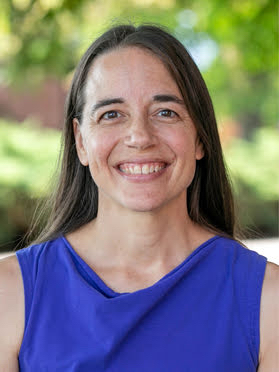Used to be, Monday nights, you’d double-check your list of discussion questions for tomorrow’s workshop. Now you grind oatmeal for cookies instead. Students are perpetually hungry.
They are in delicate transitional states; something is dying, something is being born. Their freedoms still fit them ill. You woke to it gradually: the young woman who confided the truth behind the doctor’s notes, long after you guessed that “heart trouble” was a euphemism; the one who didn’t confide anything, who remained thin and drawn and silent all semester, and didn’t return the next, and you wish you had said something, had known what to say; the heedless young men tearing their hair over the missed conference time, the online quiz. And then there are the ones half-crazed with new philosophy, faint with enthusiasm, up all night with extra-curricular reading, painting protest signs. Someone needs to feed them.
Audit a poetry course, the first time you’ve sat with the students in years. Your own students are classmates, now, and poetry is not your native language. You write 80 Works in 14 Weeks; that’s the name of the course. You love it, the uncertainty and challenge of it all. The professor feeds you the first evening—sourdough bread with homemade butter—and soon everyone is signing up to bring snacks. Sated with berry scones and lemon bars and buckets of coffee you read your poems, and your mouths are primed to feed on the words as a feast.
But of course. When you meet with your writers’ group, it’s always with food. Wine makes you your generous with your critique, your confessions. Tea helps you feel safe. And the cream puffs? They tell you that someone loves you very much.
Food is love. You’ve heard that in the context of overeating, or the way to a man’s heart. It’s true, though, the most primal form of connection. For mammals, it’s how we learn to be alive, the nourishment we suckle from our parents.
Go home to your mother when hip surgery puts her in bed. Follow her specific demands each morning: Stir the fiber drink made with a teaspoon of powder (a regular teaspoon, not a measuring spoon) and serve it with a chaser of prune juice. Brew a cup of decaf coffee grounds with a teaspoon (a real measuring spoon, not a regular teaspoon) of caffeinated grounds added. Split the sprouted wheat muffin for the toaster and top one side with a free-range egg, fried, the other with fresh-ground peanut butter. Follow a tyranny of specifics from the half slice of pepper-jack cheese for the egg to the number of raisins that garnish the peanut butter.
This is the most important thing you’ll do all day, beyond changing the bandage and disinfecting the twenty-seven staples, beyond squeezing her feet into compression socks or waking in the night to help her to the bathroom. She must wait six weeks while the bone knits to ceramic and chromium and she will have breakfast the way she wants it.
At the nursing home, your grandfather will serve you iced tea made from mint he’s grown in his garden box. Now that he can grow turnips and tomatoes, he feels more at home. With the tea, he becomes a host in his semi-private room, one wall a curtain.
Last year in the hospital, gripped by the infection that brought him to the nursing home, he wouldn’t take any drinks from the attendants. Only the cup in your hands was safe; only the water you brought him was free of poison.
One old man at a church potluck asks if there will be eating in heaven. Eternal feasting, you want to say. Remind him of the scroll Ezekiel ate in his vision, etched on both sides with words of lament, but sweet to his tongue and filling to his stomach.
You can’t take food to all of your students, but you make it part of the weekly workshop with the newspaper staff. Baking is your lesson prep. While you stir the dough, consider what nutritive feedback they need this week. Try to combine decadence and nourishment: oatmeal and duck eggs in the cookies. Fatty dip for the carrots.
Something shifts when you eat together. You see them more clearly. You talk more easily. The physical exchange mirrors what’s happening underneath, an intellectual exchange, but all of you are more comfortable with the etiquette of eating. This is what I brought today, you say, and they take it up gladly and thank you, naturally. How rare to bring a lesson on Associated Press style with such free and generous joy; how much more rare for students to return thanks for it.
Search an academic database for “pedagogy” and “feed students.” Find that people spoon-feed students, feed students’ fears, feed students grades, feed students a preset, standardized curriculum, feed students into the academic camp, the high school, the university. No one in the journals just feeds students, period. There’s something unprofessional, unexplored, too feminine, wild, when you acknowledge your students’ stomachs. A student is a mind.
Know better. Preheat the oven to 350 degrees.
